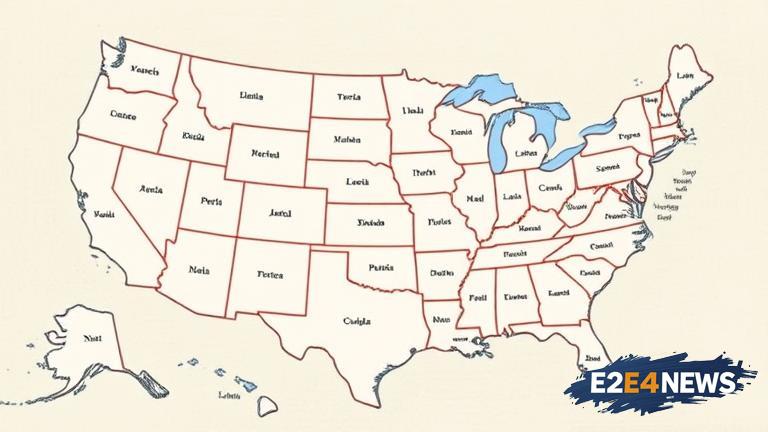The White House is actively encouraging more states to redraw their House maps, a move that could potentially give the Republican Party a significant advantage in upcoming elections. This effort is part of a broader strategy to influence the redistricting process and shape the electoral landscape in favor of the GOP. The redistricting process, which occurs every ten years, allows states to redraw their congressional maps based on updated census data. By doing so, states can create districts that are more favorable to one party or the other. The White House is reportedly working closely with Republican state lawmakers and party officials to identify opportunities to redraw maps in a way that would benefit the GOP. This could involve creating more districts with Republican-leaning voters or splitting up Democratic strongholds to dilute their voting power. The effort is seen as a key part of the Republican Party’s strategy to regain control of the House of Representatives in the next election. Democrats, on the other hand, are crying foul, arguing that the White House’s efforts amount to partisan gerrymandering. Gerrymandering, the practice of manipulating electoral district boundaries for political gain, is a highly contentious issue that has been the subject of numerous court challenges. The Supreme Court has ruled that partisan gerrymandering is not necessarily unconstitutional, but it has also emphasized the importance of ensuring that electoral districts are fair and representative of the population. The White House’s push to redraw House maps has significant implications for the balance of power in Washington. If successful, it could give the GOP a decisive advantage in the House, allowing them to block Democratic legislation and advance their own agenda. However, the effort is also likely to face significant resistance from Democrats and civil rights groups, who argue that it is an attempt to undermine the democratic process. The redistricting process is already underway in many states, with some having completed their maps and others still in the process of drawing new boundaries. The outcome of this effort will have far-reaching consequences for the future of American politics. As the process continues to unfold, it is likely to be the subject of intense scrutiny and debate. The White House’s involvement in the redistricting process has raised questions about the role of the federal government in shaping the electoral landscape. While the White House has a significant interest in the outcome of elections, its efforts to influence the redistricting process have been criticized as an overreach of executive power. The issue is likely to be the subject of ongoing controversy and litigation, with significant implications for the future of American democracy.
